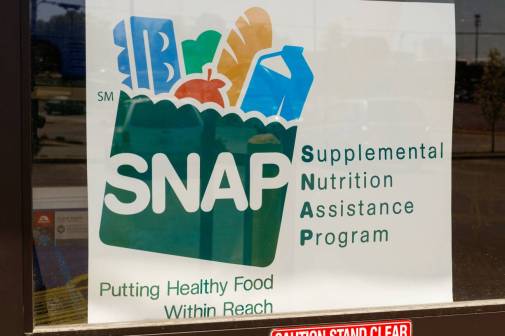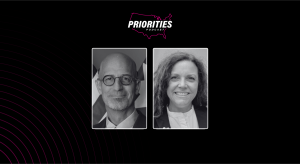Nation’s best data-driven state government initiatives highlighted in nonprofit’s report

Results for America, a nonprofit organization that advocates for governments to make evidence-based policy and budget decisions, released a report Tuesday praising dozens of initiatives by state governments across the country for meeting its “Standard of Excellence.” The organization, which launched the same series in 2013 for the federal government, has been expanded in 2018 to cover state governments for the first time.
The Standard of Excellence review looks for government programs that use data and hard evidence to make bureaucracies more efficient and productive. In total, Results for America identified 88 initiatives spread across 30 states it deemed worthy of inclusion in its 48-page report .
The highlighted projects, which are sorted into 15 categories ranging from data use and cost-benefit analyses to more blue-sky areas like “strategic goals” and “innovation,” represent one group’s identification of the best practices available today in government technology.
Five states in particular — Colorado, Minnesota, Oregon, Tennessee and Washington — were called out for having multiple programs that made the list.
Data-driven leaders
Results for America found the greatest number of deserving programs for its “performance management/continuous improvement” category, with 12 states making the cut. Here, the organization focused on dashboard-style website where state employees — and sometimes the public — can make decisions based off aggregated public data. Tennessee’s was deemed the best. The Volunteer State’s data website, Transparent TN , presents users with dashboards that break down agencies’ performance and fiscal data, along with the strategic goals of every state department.
Colorado also received plaudits for its Governor’s Dashboard , a website on which residents can get updates about state agency projects and goals. The site was also noted for “evaluation leadership” for being under the supervision of Lieutenant Governor Donna Lynne, who also doubles as the state’s chief operating officer.
Minnesota, the group said, had the best example for setting guidelines for evidence that can be used to improve government programs. Specifically, the report cites a 2015 law that enabled the state budget office to conduct inventories and cost-benefit analyses of programs related to criminal justice, mental health, child welfare, substance abuse treatment and juvenile justice.
Washington state was also praised for its cost-benefit analyses procedures, particularly the state’s Institute for Public Policy, or WSIPP, which uses hard evidence to make successful state programs more efficient and eliminate poorly performing initiatives entirely. At a Washington, D.C. lunch event Tuesday marking the Results for America report’s release, former WSIPP director Bethanne Barnes said her agency successfully advocated for the elimination of the state’s “Scared Straight” program, which attempted to divert at-risk youth from crime by exposing them to prison environments, was found to actually increase its participants’ likelihoods of committing crimes.
‘Moneyball for government’
More broadly, Results for America’s leadership is promoting what it calls “Moneyball for Government,” a set of principles that advise governments to use data and evidence rather than unproven theories when determining how to spend taxpayer money. The initiative is inspired by “Moneyball: The Art of Winning an Unfair Game,” a 2003 book about the Oakland Athletics’ use of advanced baseball statistics to compete more aggressively with deeper-pocketed clubs and that was adapted into a 2011 film starring Brad Pitt, Jonah Hill and Philip Seymour Hoffman.
The “Moneyball for Government” guidelines are:
- Building evidence about the practices, policies and programs that will achieve the most effective and efficient results so that policymakers can make better decisions;
- Investing limited taxpayer dollars in practices, policies and programs that use data, evidence and evaluation to demonstrate they work; and
- Directing funds away from practices, policies, and programs that consistently fail to achieve measurable outcomes.
Results for America, which launched its “Moneyball” ideals in 2013 with an essay in the Atlantic from two former White House policy chiefs, also recently released a book expanding on the topic.
All 50 states, though, flunked out of the Standard of Excellence’s category for “evaluation resources.” Results for America says government programs should spend at least 1 percent of their funds on internal evaluations, but could not find any example that meets that threshold.
“Making specific funding commitments to evaluation is critical and ensures that state governments have the necessary funds to evaluate whether state programs are achieving their desired outcomes,” the report states.
The full Standard of Excellence report can be read on Results for America’s website .






